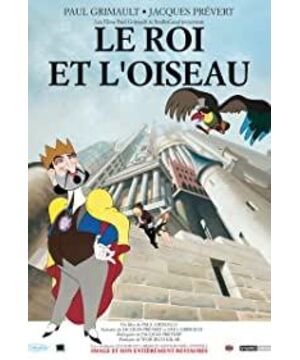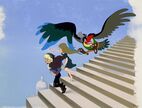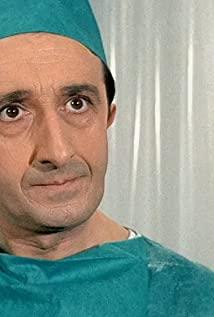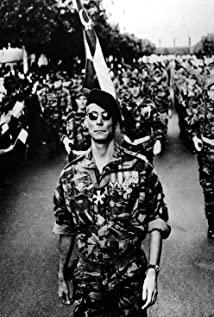On the front: Maybe a little "politically correct", but this is really the reflection that this film brings. I think it's a good movie.
What initially attracted me to watching this animated film was actually the fairy tale title, and yes, I thought it would be a story like Snow White or Cinderella waiting for me.
But this is not the case. This is a movie with a very obvious political metaphor. What it wants to express is not hidden deeply, but it can trigger a lot of thinking.
True and false kings are symbols of power, while birds represent freedom. Just as the bird's nest was built on the king's high palace at the beginning, people's yearning for freedom is not destined to be suppressed by power.
At the beginning of the film, the king's perpetually arrogant and arrogant expression and his icy and luxurious palace suggest that this is an absolute monarchy. In this country, the king has supreme power, he can do whatever he wants with a person, and the way this is shown in the film is that he has a button that can make people fall, so everyone on the ground lives in fear.
The movie also gave the king a funny name and a pair of cross-eyed eyes, and of course, no one dared to point out that the guards would pierce bullet holes in the target to please him even if the target was all off. Here, the king is inviolable, blameless and sacred.
But he soon succumbed to his own consequences, and the king in the painting took his place without the cross-eyed king, which, ironically, the flattering courtiers who surrounded him all day never found out.
Starting from the resurrection of the shepherdess, the chimney worker and the fake king in the painting, the plot of the film began to become very attractive. The pictures and music during the escape of the two cooperated quite well, which was full of tension and exciting.
During the tense escape process, the film also interspersed some plots expressing the tradition of French romanticism to make adjustments. For example, in order to let the shepherdess and chimney workers who have never seen the world see the changes of the sun in a day, it should have taken 24 hours. The rotation of the earth is done in an instant; birds call a flock of white doves to stop at the king's statue and sing praises, etc. Among them, there are two episodes that impressed me the most. First, the blind musicians were thrown into the beast pile, but they captured the hearts of the beasts with their beautiful music, so that they no longer felt hungry and even applauded! Second, at the end of the movie, the large robot, which was originally the king's ruling machine, made a "thinker" action on the edge of the ruins, and also released a young bird that was strayed into the cage again.
At the same time, much of the film's plot seems to be drawn from French history. The plot of the true and false kings is probably related to the story of King Louis XIV of France and the Man in the Iron Mask. Of course, this cannot be attributed to the official history; the beasts broke through the dungeons to help the people see the light of the sun again, which seems to correspond to the plot of the occupation of the Bastille in the French Revolution in 1789; The bird-controlled robot destroying the palace echoes the 1792 occupation of the king's residence that brought down the Bourbon dynasty.
In fact, this animated film still takes care of the psychology of underage audiences. There are no bloody scenes in the whole process. Even the two kings, the real and the fake, are only exiled and the other is exiled. But we should be clear that the pursuit of freedom is bound to pay a price, and the road to democracy is sprinkled with the blood of pioneers, just like the end of the movie "One Flew Over the Cuckoo's Nest", McMurray who brought free ideas to the "patients" Fei had her frontal lobes removed and turned into a characterless idiot. Sacrifice is unavoidable, which is why today we cherish our rights under the law and feel extremely fortunate to live in a country that is free, democratic, and ruled by law.
At the end of the film, the robot sits beside the ruins, like a giant statue of "The Thinker", it releases the bird trapped in the cage and smashes the cage of freedom with one punch. This is a very meaningful ending. The pursuit of freedom is the nature of all things, and we will eventually break all the cages.
View more about The King and the Mockingbird reviews









